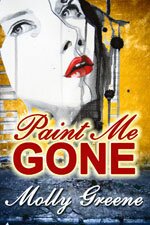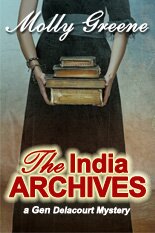We live in an age where more timesaving devices are available than ever before, yet many of us still feel overwhelmed by the mountain of tasks we face daily. We have too much to do and too little time to accomplish it all. It’s a challenge to remain focused amid all the distractions of our daily lives, and real productivity always seems to be just out of reach.
Many authors are forced to juggle a full-time job, families, friends, and domestic responsibilities with their dream of getting a book self-published and selling it once it’s launched.
In short, we often forfeit balance as a trade-off for reaching our goals. Yet the harder we work the more stressed we feel, and our productivity often decreases further as a result. If you’re like me, you’re wondering what to do to bring this monster of an issue under control without sacrificing sanity.
I have an idea.
 Back in 2004, I read David Allen’s groundbreaking national bestseller, Getting Things Done, the Art of Stress-free Productivity. I implemented his system and made great strides in my organizational efforts it at the time, but like so many things the tools slipped away. I’m going to revisit this system with you. Let’s begin by reviewing time management skills.
Back in 2004, I read David Allen’s groundbreaking national bestseller, Getting Things Done, the Art of Stress-free Productivity. I implemented his system and made great strides in my organizational efforts it at the time, but like so many things the tools slipped away. I’m going to revisit this system with you. Let’s begin by reviewing time management skills.
Three Key Elements Of Workflow Management
- Identify and implement more efficient ways to organize tasks and complete them. Without a plan, you’re working in reactive mode that can lower productivity and increase stress. Organize projects with a system that shows exactly what needs to be accomplished.
- Focus on your most important tasks. Your top-level goal is to move high value projects forward. Always know your high priority tasks and train yourself to focus and complete them first.
- Use odd minutes during the day. Devise a flexible org system that helps you effectively use discretionary time available throughout the day. On hold? Stuck in traffic? Waiting for someone? Use this “free” time to complete tasks.
It’s About Action Management, Not Time Management
Allen points out that we cannot “do” a project, we can only perform a series of actions that move a project toward completion. The key to a balanced life is not in managing time, it’s managing actions, and he believes it’s impossible to be truly organized when we try to retain details about tasks using only notes and brainpower.
To create a more organized workflow, Allen recommends that we capture and record all projects (anything you consider unfinished in any way) in a system that you review regularly. According to Allen, lack of time is not the issue; the real problem is a lack of clarity about a project’s required next-action steps.
Once our thoughts have been clarified, decisions made, and resulting data recorded, retained and reviewed, our minds will release control of the problem and stop worrying about how to solve it. This simple but important move can add up to impressive changes over time. Creating an organized system in which we define and complete action steps forms the core of Allen’s philosophy about the most effective way to manage a heavy workload without stress:
- Clarify the intended outcome of a project.
- Define the next action step(s) we need to take to a project forward.
- Make plans re: how and when to complete these steps.
- Place reminders of both the outcome and the action(s) required in a system we regularly review.
Let’s face it, we’re all tempted to complete the work we enjoy and leave difficult projects unfinished, unresolved … and ultimately overwhelming. Here’s a method to get the tough stuff out of the way first thing:
- Prioritize tasks.
- Understand your natural energy flow and tackle top-level tasks during peak energy hours, or
- Discipline yourself to handle must-do chores and issues first thing each day.
- Identify your personal timewasters, then take aggressive action to eliminate or reduce them.
If creating a balanced, satisfied, stress-free life was simple, we wouldn’t fret about it as much as we do, but like all things worth achieving, this, too, is a worthy goal.
Recap: Allen’s Five Stages of Mastering Workflow
In his book, author David Allen presents a unique new strategy designed to organize our hectic work and personal lives – and once you get the hang of it, you’ll be a convert. Here’s a sample of Allen’s philosophy:
 Collect everything into holding containers. Use in-baskets, a notebook, tape recorder and/or Word doc or paper and pen to gather up every single personal and professional “incomplete” that represents an unresolved project demanding your attention. Example: mail, email, accumulated paperwork and reading material, gadgets that need to be fixed or disposed of, decisions that need to be made, stalled WIPS, whatever. Everything.
Collect everything into holding containers. Use in-baskets, a notebook, tape recorder and/or Word doc or paper and pen to gather up every single personal and professional “incomplete” that represents an unresolved project demanding your attention. Example: mail, email, accumulated paperwork and reading material, gadgets that need to be fixed or disposed of, decisions that need to be made, stalled WIPS, whatever. Everything.- Process each item. First define a) what an item is, then decide b) what needs to be done about it and c) if it requires immediate action. If it does not require an action, trash it or file it in its appropriate place for future action or future reference.
- Define the next Action Step. If the item requires action, determine two things: a) what is the desired outcome, and b) what is the next action step needed to reach the desired outcome. If the action step will take less than two minutes to complete, the project should be completed at the moment it is defined.
- Organize. If the action(s) will take longer than two minutes, write the desired outcome on a master “projects” list, place the item in a container comprised of “stuff” about which something needs to be done, and record and track the action step(s) required to complete the project on a master “action steps” list.
- Arrange your next action lists by context, such as “next actions to be taken when at the computer,” “next actions to be taken when making phone calls.” These hold the inventory of predefined actions you can take if you have discretionary time during the day.
- Review action lists regularly, and perform a Weekly Review during which you can gather and process new “stuff,” review your system, update lists, and get clear, current, and complete.
Note from Molly: Check out my novels on Amazon, join my Reader’s Club for freebies and book news, and follow me on Twitter. This original content is copyright protected. Thank you so much. Mwah!











Comments are closed.